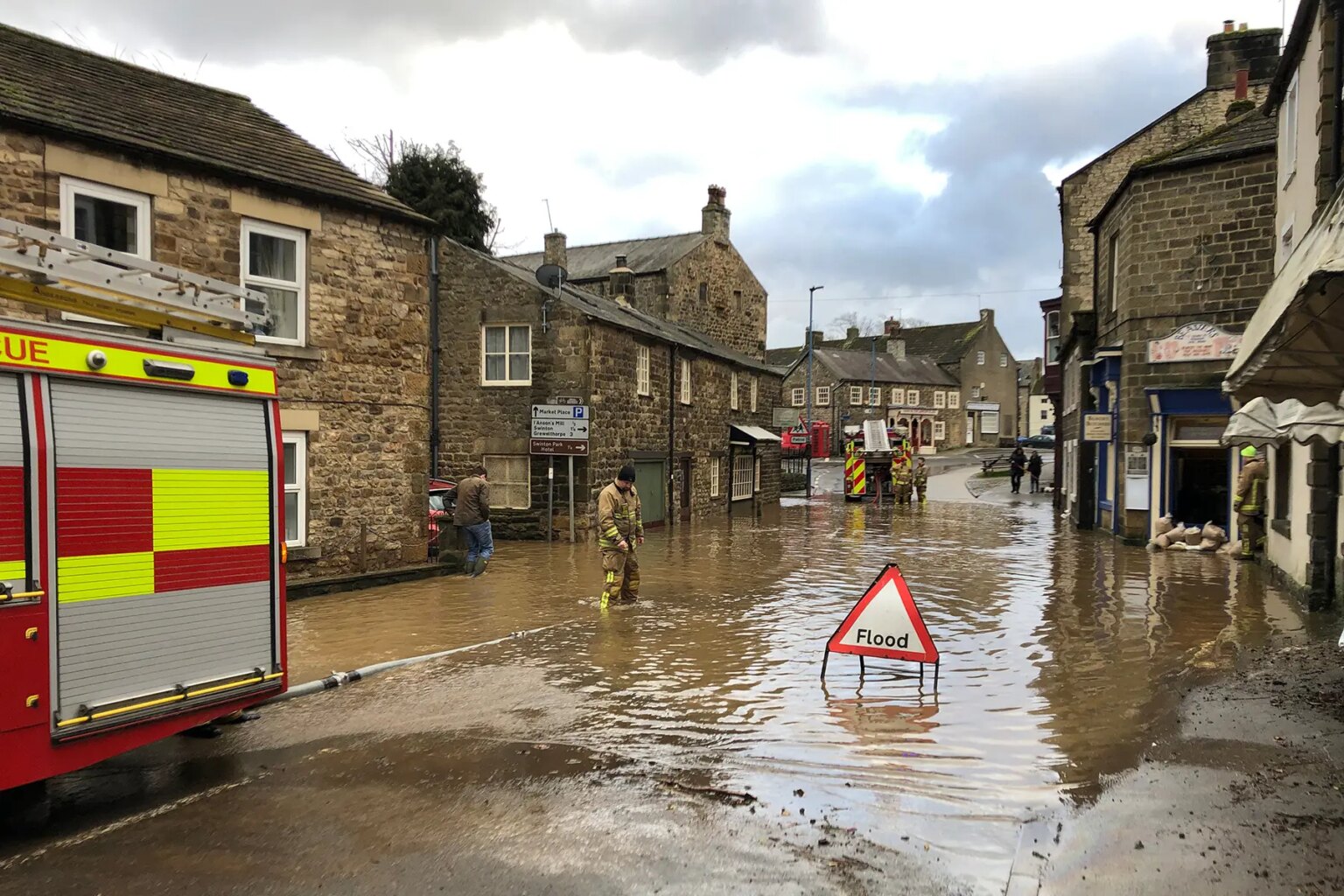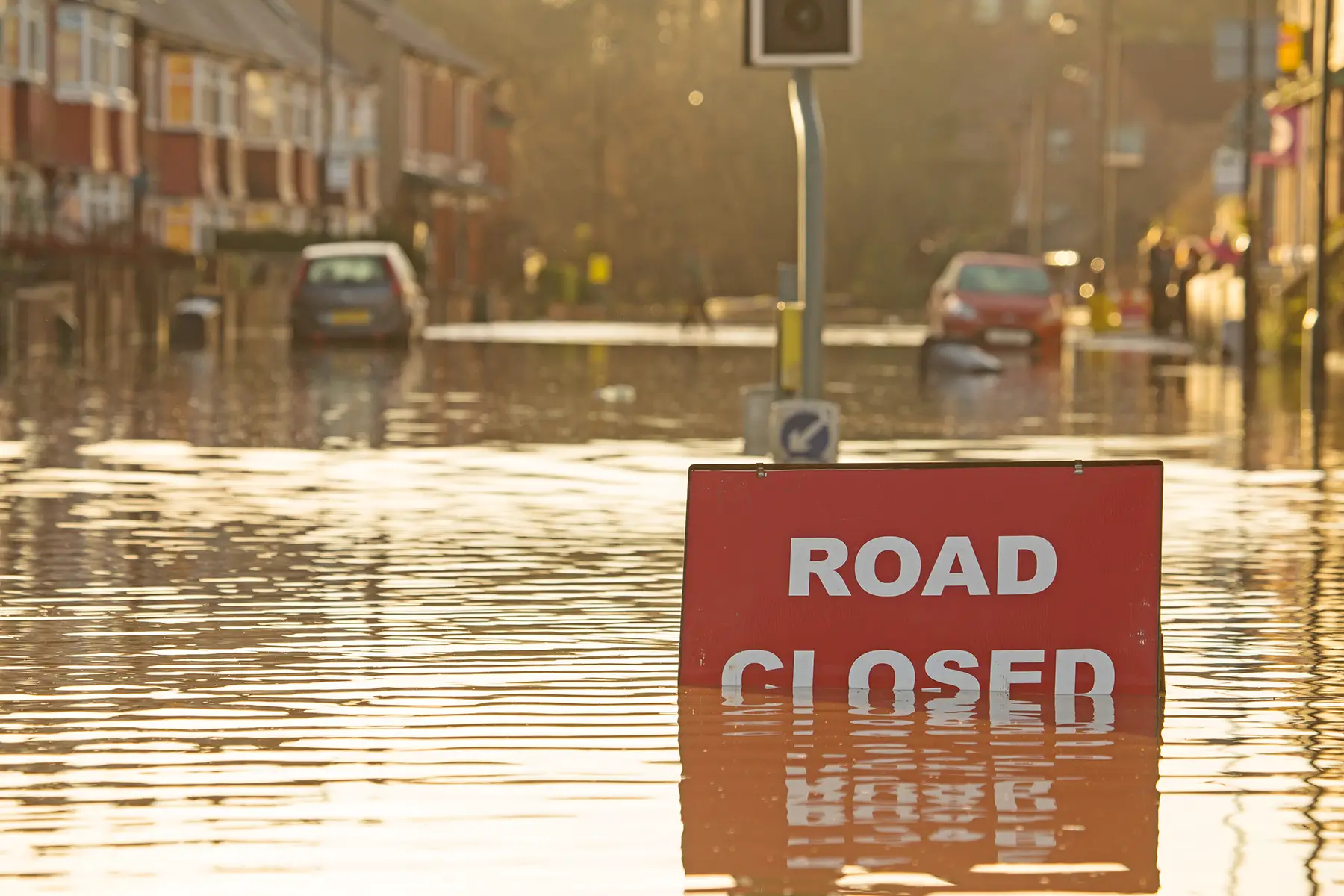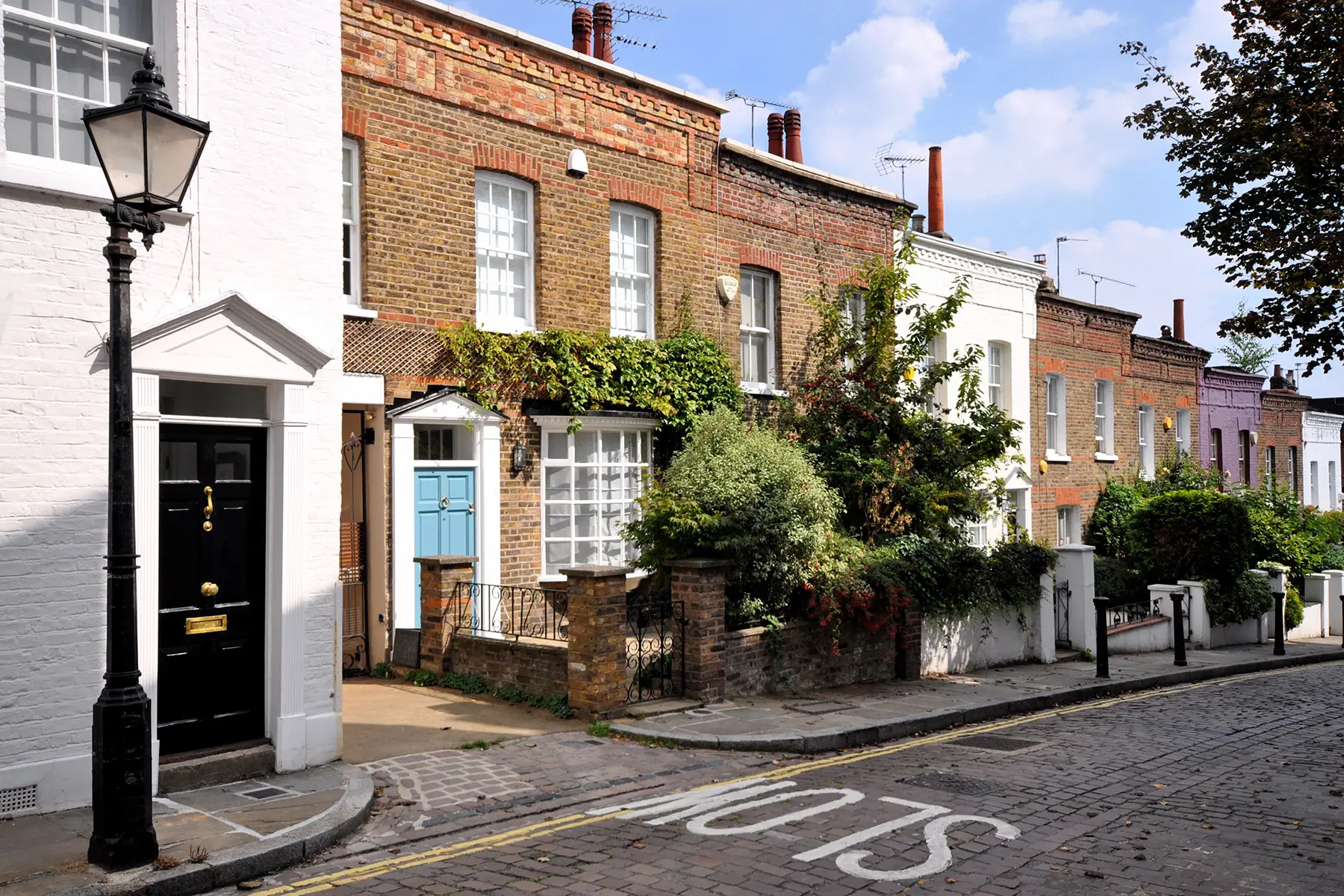Home insurance in the UK is there to protect against disasters such as fires, water damage, or burglary. However, it’s important to choose the right coverage and understand the difference between the various types of policies. What you need if you buy a home in the UK may well differ from your requirements if you rent a property.
This guide covers the main home insurance topics, including:
- An overview of home insurance in the UK
- Home insurance companies in the UK
- Home contents insurance in the UK
- Building insurance in the UK
- Combined home insurance in the UK
- Liability insurance in the UK
- How to choose your home insurance in the UK
- Applying for home insurance in the UK
- How to make a home insurance claim in the UK
- Canceling a contract or changing provider
- Making a complaint about a home insurance company in the UK
- Holiday home insurance in the UK
- Useful resources
Lemonade
Think you know insurance? Think again. Lemonade brings insurance into the 21st century, letting you take out liability and contents coverage in minutes. On their easy-to-use English app, you’ll be able to buy and manage your cover from the comfort of your own phone. Protect your home and belongings instantly with Lemonade.
An overview of home insurance in the UK
Home insurance in the UK usually comes as two different types of policy:
- Building insurance, which covers the structural fixtures and fittings such as walls, roof, and ceilings
- Contents insurance, which protects the movable belongings such as furniture, clothing and personal valuables

You can also buy combined building and contents insurance, which may be more suitable if you own your home. If you buy a combined package or separate building insurance, this usually also includes personal liability insurance to cover you against damages to third parties or their property in your home.
Neither contents insurance nor building insurance is compulsory in the UK, although nearly three-quarters of British households have some form of home insurance coverage.
As with other forms of UK insurance, home insurance is regulated by the Financial Conduct Authority (FCA) and the Prudential Regulatory Authority (PRA). The FCA is bringing in new rules from January 2022 to stop insurance companies charging existing customers more than new ones for home insurance policies.
Can you use home insurance from another country in the UK?
Home insurance in the UK is not compulsory, so there are no restrictions on which insurers you can use for either building, contents or combined insurance. This means that you can use a home insurance policy from overseas to cover your property in the UK. However, this will need to be a policy that specifies coverage in other countries, including the UK. For example, an extended contents policy with global coverage or an expat home insurance package designed for homes abroad.
You also need to bear in mind that, if it’s an overseas company not regulated by the FCA in the UK, you will need to take up any complaints with the regulatory body in your home country.
Home insurance companies in the UK
There are many providers of home insurance in the UK. Most offer combined packages at cheaper prices, as well as separate contents and building coverage for those wanting a standalone policy. Insurance companies in the UK that offer types of home insurance include:
- AA
- Aviva
- AXA
- Churchill
- Direct Line
- Lemonade
- LV
- Naturesave – specializes in green insurance
- Saga – specializes in home insurance for over-50s
In addition to insurance companies, many other businesses such as banks and big supermarket chains sell home insurance in the UK. Therefore, it pays to shop around to find the best deals. You can use comparison tools such as:
Home contents insurance in the UK
You can take out separate contents insurance on your belongings in the UK, whether you buy or rent your property. However, it is more common among renters and students who usually don’t need a buildings insurance policy.
Contents insurance in the UK will protect most of your movable property. This includes items such as:
- Household furniture that you own
- Clothing
- Jewellery
- Electronic gadgets
- Cash
However, standard policies have limitations such as a maximum value on items covered – for example, anything valued at over £1,000 may need separate or additional coverage. Other common exclusions are goods left outside the home in gardens or sheds (e.g. bicycles), or goods in properties left unattended for longer than 30 days. Typically, you can pay higher premiums to get any of this covered.

Standard policies cover you in the event of fire, flooding, storm damage, burglary, and vandalism. Commonwealth exclusions are acts of terrorism, damage due to negligence, and damage due to general wear and tear.
In the event of a successful claim, your insurer will usually pay out the agreed cost of replacing damaged or stolen goods.
Costs of home contents insurance in the UK
The average cost of contents insurance in the UK is £57 a year, which works out to a little over £1 a week. Typical policies are between £40–65, although if you have a lot of valuables and live in an expensive property, then you can end up paying over £100 a year.
Your premiums are based on the value and condition of your contents, along with various other risk factors relating to yourself, your property, and your neighborhood. Many insurance and comparison websites have cost calculators to help you work out likely costs, such as this one by Confused.com.
Building insurance in the UK
Similar to contents insurance, buildings insurance in the UK is not compulsory. On the other hand, most UK mortgage lenders have it as a lending requirement. It’s useful insurance for homeowners and landlords. However, if you only own the leasehold on your property, you will need to check arrangements with the freeholder who is responsible for insuring the building. Typically, you won’t need this insurance if you live in a block of flats or a communal building.
Buildings insurance protects the fixed property including walls, floor, ceiling, and any fixed fittings such as kitchen or bathroom units. Some policies also cover windows, garages, gardens, and sheds, but you will need to check this. Common exclusions are fences, gates, hedges, and swimming pools.

Standard policies protect against fire damage, floods, burst pipes, gas explosions, and vandalism. They also usually include liability coverage against injury or damage to third parties in your home. You will typically have to pay extra to cover damage due to dry rot, poor workmanship, negligence, or business-related damage. General wear and tear is excluded.
When taking out a building insurance policy, you should cover the costs of rebuilding the property in the event of a bad accident. Standard policies usually cover around £1 million worth of damage, plus some alternative accommodation costs. If you are a landlord, you may want to pay extra to cover loss of rental income.
Many companies offer specialized building insurance, for example, to cover unoccupied homes or listed buildings.
Costs of building insurance in the UK
Prices for UK building insurance vary according to property factors such as building age, size, and materials used. In addition to this, personal and geographical factors will play a part. The average costs for building insurance in the UK as of October 2021 are £111 per year. This varies between an average of £95 annual premium for a one-bedroom place and £135 for a four-bedroom property.
You can use a cost calculator to work out your likely building insurance costs, such as this one with MoneySuperMarket.
Combined home insurance in the UK
Many people take out combined contents and buildings insurance in the UK, which protects both the building and all property within it from damage. In addition to often being cheaper, this also avoids any disputes between separate providers over who pays out for what if you make claims with two separate providers.
As of October 2021, the average cost of a combined home insurance policy in the UK is around £141. This equates to an annual saving of around £27 when compared to buying separate individual policies. Check out your likely costs on a calculator such as the one on MoneySuperMarket.
Liability insurance in the UK
Personal liability insurance in the UK is rare. It is possible to take it out with some insurers to protect against accident or injury to third parties. This form of insurance is usually included with buildings or combined home insurance in the UK. Standalone liability insurance is usually purchased as public liability insurance, often for one-off events such as parties or community events.
How to choose your home insurance in the UK
When choosing home insurance in the UK, shop around and make use of tools such as comparison sites to get the best deal. It’s also important to consider other factors beyond premium costs so that you get a policy that suits your particular needs. Things you may want to consider include:
- Type of policy needed – if you are an owner-occupier, you can look to save money with combined insurance. However if you are a tenant or landlord, then an individual policy may make more sense.
- Discounts available – you can reduce your premiums in a number of ways such as using no-claims bonuses, paying a deductible/excess or paying annually rather than quarterly/monthly.

- What is included/excluded – each policy is different, so make sure that you get one that covers exactly what you need so that you don’t leave anything uninsured or pay for things coverage you don’t need.
- Company feedback – check customer reviews and ratings sites to assess performance.
- Other incentives – some insurers offer free gifts or partner with other companies to offer discounts, e.g. 50% off a restaurant meal or cinema ticket.
- Claims process – how easy is it to make a claim? Can you do everything online? How long do you have to wait for reimbursement?
- Ethics and sustainability – how does the company perform and does it have a good Corporate Social Responsibility (CSR) record? You can look up potential insurers on sites such as Ethical Consumer or CSR Hub.
You can also check websites such as Money Saving Expert for tips on how to save money on your UK home insurance.
Applying for home insurance in the UK
Applying for home insurance in the UK is fairly straightforward with most companies. Typically, you will fill in a quote form to find out how much your annual premium will be. You can then usually either take out a policy online, or a local agent will contact you to proceed.
You will need to provide:
- Personal details, such as your name, date of birth, address and claims history
- Information on the property you are insuring, including the total value (it’s advisable to get a professional valuation if taking out building insurance)
- Bank account details
- Information on your current home insurance policy, if you are switching providers

You can arrange your coverage fairly quickly with most insurers. Coverage starts as soon as you make your first payment and you can usually receive all the necessary documents electronically. You should receive a policy number and an information pack with details on your policy, general terms and conditions, and instructions on how to make a claim.
Most home insurance policies last for twelve months, but are often auto-renewing unless you terminate within the notice period.
How to make a home insurance claim in the UK
If you need to make a home insurance claim at any point in the UK, you should contact your insurer as soon as possible. Most companies allow you to submit a claim either online or by phone. You will need to provide:
- Your insurance policy number
- Details of the claim, including dates/times, extent of damage, and details of anything stolen (include pictures if possible)
- Any receipts, quotes or invoices if you have had to pay out for anything
Here is an example claim form from Naturesave, to give you an idea of what you’ll need to provide. You should also inform the police in the event of a burglary.
Your insurer will probably assign you a claims manager, with whom you can liaise while your claim is processed. Most claims in the UK are usually settled in a matter of weeks if they are straightforward.
Canceling a contract or changing provider
You can cancel a home insurance contract or change to another provider at any time in the UK. However, you may be charged an exit fee if you’ve signed up for a minimum period and want to leave early. All companies have to offer an initial 14-day cooling off period during which you can cancel without incurring any fees and receive a refund for any insurance paid.
Many insurance policies in the UK automatically renew unless you terminate the contract before it ends (typically around 28 days before the end date). If you want to cancel at any time, you will usually have to inform your insurer in writing or follow procedures on their website. The company should inform you of its cancelation policy and process when you sign up.
You can use a company such as Uswitch or MoneySuperMarket to help you change your home insurance provider. Some insurers also provide assistance with switching to them as an incentive to take out a policy.
Making a complaint about a home insurance company in the UK
If you are unhappy with the service provided by an insurance company in the UK or feel that you have been unfairly treated, you should follow these steps:
- Contact the complaints department of your insurer in the first instance. Your insurer should provide you with the contact details when you take out your policy. You can also use the Resolver complaints tool to help you with this.
- If you are unhappy with the company’s decision, or you don’t hear back within 12 weeks, you can escalate the complaint to the Financial Ombudsman Service.
- As a final resort, you can take your complaint to a small claims court if you are unhappy with the Ombudsman’s findings.
Holiday home insurance in the UK
If you want to insure a holiday home in the UK, you will need to take out coverage that includes things such as loss of rental income and risks associated with long unoccupied periods. Most standard home insurance policies only cover homes left empty for a maximum of 30 days at a time.

Some insurance companies in the UK supply holiday home insurance which you can buy as a separate policy or sometimes combine in a package. Similar to standard home insurance, you can choose between buildings, contents or combined coverage. Another option is to take out a policy with a holiday home insurance specialist such as Homeprotect.
Useful resources
- Financial Conduct Authority (FCA) – main regulator of UK financial services
- Uswitch – comparison tool and site that also helps you switch provider
- Money Helper – site that provides help and support around buying a range of financial products including insurance






